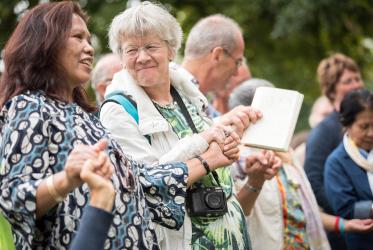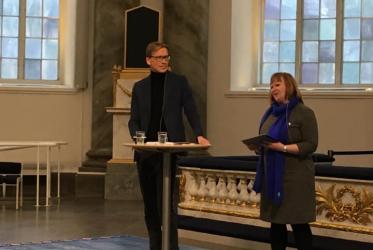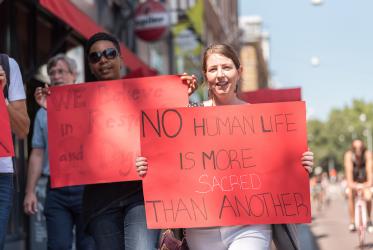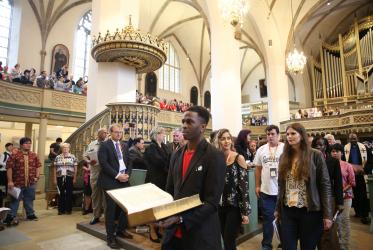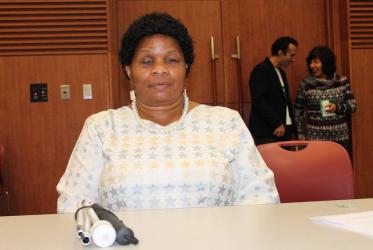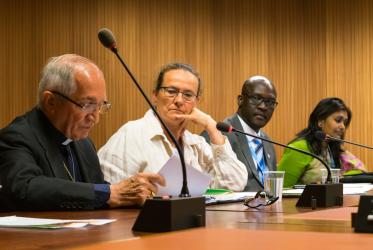Displaying 1 - 20 of 21
05 September 2022
Women with disabilities want to belong in churches
31 August 2022
Plans for 11th WCC Assembly build excitement across the globe
18 February 2020
WCC welcomes new staff
11 February 2020
Ecumenism is a sense of belonging
08 February 2019
WCC Executive Committee envisions future for one ecumenical movement
08 November 2018
WCC executive committee tackles public issues
07 November 2018
A vibrant movement ready for tomorrow’s challenges
04 November 2018
Refugees in transit: pushing boundaries all around
08 February 2016
WCC/UN conference calls for coordinated action on refugee crisis
20 January 2016



